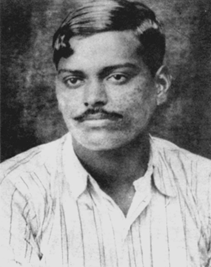

24th July 2023 (7 Topics)
Context
Prime Minister Modi paid tributes to freedom fighter, Chandra Shekhar Azad on his Jayanti.
About Chandrashekhar Azad
- Chandrashekhar Azad (1906-1931) was a fearless revolutionary who played a pivotal role in the Indian freedom struggle.
- Major Contributions:

- He reorganised the Hindustan Republican Association (HRA). It was a revolutionary organisation formed by Ramprasad Bismil.
- 1921: When Mahatma Gandhi launched the Non-Cooperation Movement in December 1921, Azad, then a teenager, took part in it. He was arrested by the British during a demonstration.
- 1925: He participated in the Kakori train robbery and assassination of British police officer John Saunders. While most of the participants were arrested, Azad escaped to Jhansi.
- 1928: Helped by Bhagat Singh and Sukhdev, they formed the Hindustan Socialist Republican Association (renamed from HRA).
- The first task of the HSRA was to shoot JP Saunders at Lahore in 1928 to avenge the death of Lala Lajpat Rai.
- The second task was to bomb the Central Assembly to protest against the Public Safety Bill and the Trade Disputes Bill.
- Following the arrest of Bhagat Singh after the bombing of the Central Assembly, Azad tried to get him out of prison.
- On February 27, 1931, Azad was surrounded by the police when he went to Alfred Park to meet one of his contacts.
- He refused to surrender and bravely fought the police battalion for hours before shooting himself in the head, staying true to his resolve to remain 'azad' (free). His Colt pistol is displayed at the Allahabad Museum.


